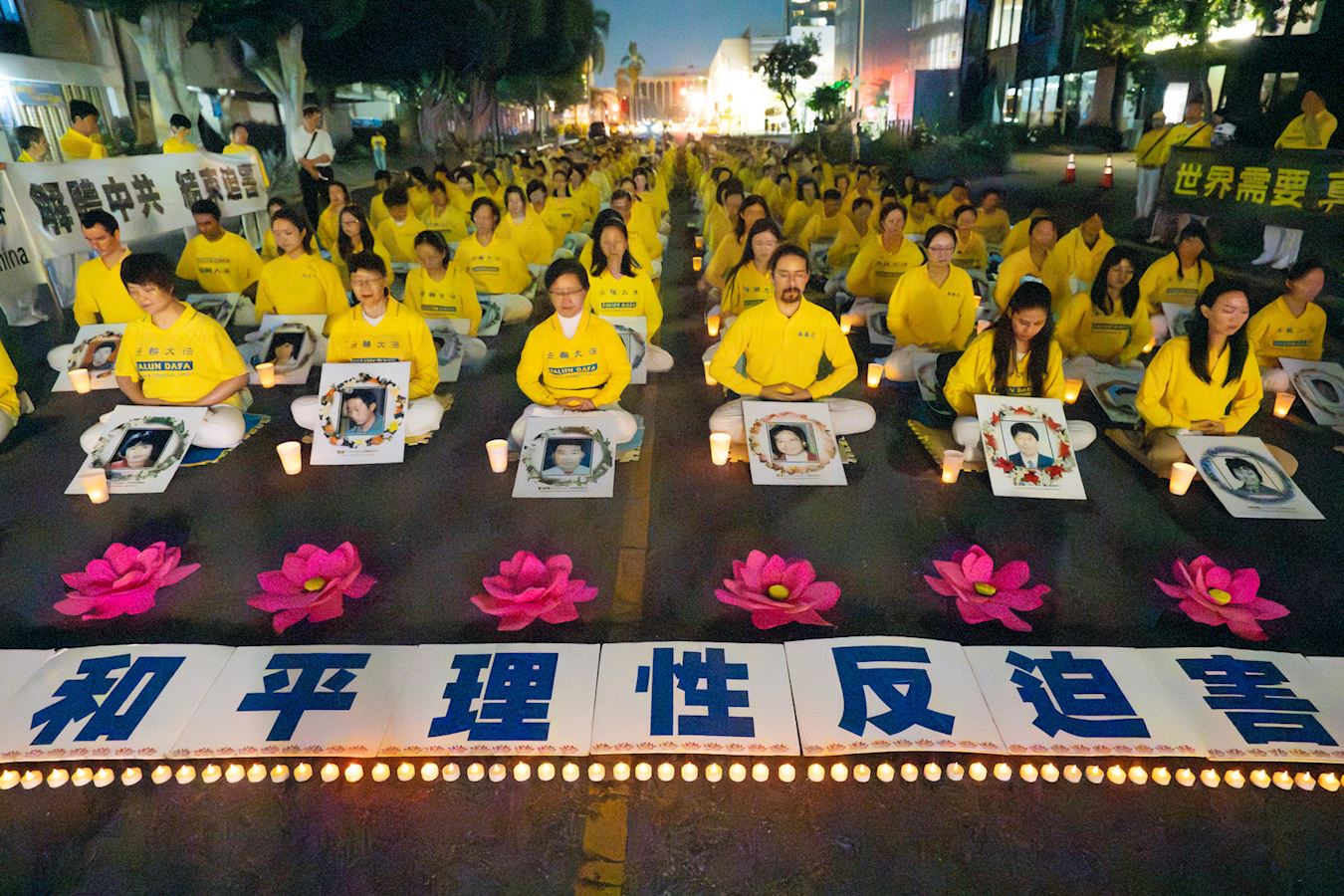Big Controversy
– Doctors, Death, and Ethics
If redefining death in America marks the grey zone, what happens when that idea becomes policy? In China, it became an industry.

Cheng Pei Ming still carries the scar — a 35-centimeter reminder of what the Chinese Communist Party (CCP) calls “medical advancement.”
According to The Diplomat (Aug. 10, 2024), Cheng was repeatedly detained between 1999 and 2004 for practicing Falun Gong, a meditation-based faith Beijing banned. Inside Daqing Prison, guards ordered constant blood tests to check his organs’ condition before taking him for surgery under the pretext of removing “metal objects.”
“When I woke up,” Cheng said, “I felt terrible pain in my side. There was a bloody tube connected to me. I was shackled to the bed.”
CT scans later confirmed that parts of his liver and left lung had been removed. “At the time, I didn’t realize it was organ harvesting,” he said. “After medical tests in the U.S., I found out parts of my organs were missing.”

Human-rights lawyer David Matas, co-founder of the International Coalition to End Transplant Abuse in China (ETAC), called Cheng’s case “incontestable.” “There have been no survivors before,” Matas told The Diplomat. “The bodies are cremated after organ harvesting. But Cheng survived — and his scars speak for themselves.”
The McCain Institute reports official Chinese data showing roughly 16,000 organ transplants in 2017, while independent experts estimate 60,000 to 100,000 each year — a gap suggesting tens of thousands of unaccounted donors. Testimony cited by the institute places between 25,000 and 50,000 prisoners under forced extraction annually.
In May 2025, the U.S. House of Representatives voted 406–1 to pass the Stop Forced Organ Harvesting Act, led by Representative Christopher Smith. The bill labels forced organ harvesting “big business for Xi Jinping and the Chinese Communist Party.”
Representative Neal Dunn followed with the BLOCK Act (March 2025), blocking federal payments for any transplant whose organ source cannot be verified. “The United States must ensure we are not participating in illegal Chinese organ harvesting,” Dunn said.
The McCain Institute values the market at $1 billion a year, driven by organs taken from as many as 1.5 million inmates. Inside prisons, detainees are lined up for blood draws and tissue scans — not for care, but for inventory.
Cheng remembers the “610 Office,” a secret CCP unit created to crush Falun Gong, overseeing his hospital stay. “I was shackled, drugged, and left to die,” he said. “They didn’t want a patient. They wanted a product.”
For human-rights advocates, his survival changes everything. “Cheng can finally show the world what the CCP denied existed,” Matas said.
Across Washington, outrage spread. The McCain Institute called the revelations “a new form of evil.”
Cheng now lives in the United States. Every breath reminds him of what he lost — and what he survived.
“I am one of the lucky ones,” he said. “But there are countless others who were cut open and never woke up.”
Sources
– The Diplomat – Aug. 10, 2024 –
https://thediplomat.com/2024/08/first-known-survivor-of-chinas-forced-organ-harvesting-speaks-out/
– The McCain Institute – 2025 – https://www.mccaininstitute.org/resources/blog/uncovering-evil-illegal-organ-harvesting-in-china-and-the-2025-stop-forced-organ-harvesting-act/
– U.S. House of Representatives (Rep. Neal Dunn) – March 2025 –
https://dunn.house.gov/2025/3/congressman-dunn-blocks-illegal-chinese-organ-harvesting



![K-pop Demon Hunters hit fuels surge in Korean language learning across U.S. Students in a beginner Korean-language class at the King Sejong Institute learn Hangul on February 3. [Sangjin Kim, The Korea Daily]](https://www.koreadailyus.com/wp-content/uploads/2026/02/0204-Hangul-100x70.jpg)